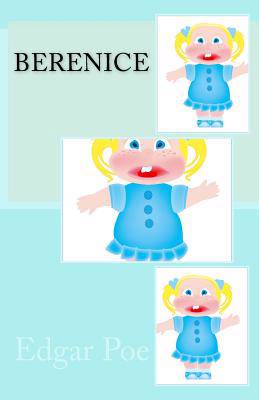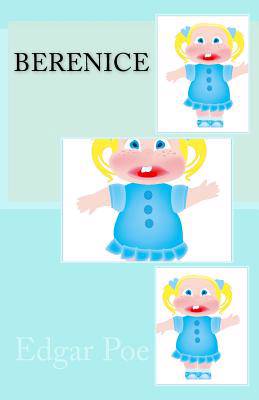
- Retrait gratuit dans votre magasin Club
- 7.000.000 titres dans notre catalogue
- Payer en toute sécurité
- Toujours un magasin près de chez vous
- Retrait gratuit dans votre magasin Club
- 7.000.0000 titres dans notre catalogue
- Payer en toute sécurité
- Toujours un magasin près de chez vous
Description
"Berenice" is a short horror story by Edgar Allan Poe, first published in the Southern Literary Messenger in 1835. The story follows a man named Egaeus who is preparing to marry his cousin Berenice. He has a tendency to fall into periods of intense focus during which he seems to separate himself from the outside world. Berenice begins to deteriorate from an unnamed disease until the only part of her remaining healthy is her teeth, which Egaeus begins to obsess over. Berenice is buried, and Egaeus continues to contemplate her teeth. One day Egaeus wakes up from a period of focus with an uneasy feeling, and the sound of screams in his ears. A servant startles him by telling him Berenice's grave has been disturbed, and she is still alive; but beside Egaeus is a box containing 32 blood-stained teeth and a poem about "visiting the grave of my beloved." Contemporary readers were horrified by the story's violence and complained to the editor of the Messenger. Though Poe later published a self-censored version of the work he believed he should be judged solely by how many copies were sold. The narrator, Egaeus, is a studious young man who grows up in a large gloomy mansion with his cousin Berenice. He suffers from a type of obsessive disorder, a monomania that makes him fixate on objects. She, originally beautiful, suffers from some unspecified degenerative illness, with periods of catalepsy a particular symptom, which he refers to as a trance. Nevertheless, they are due to be married. One afternoon, Egaeus sees Berenice as he sits in the library. When she smiles, he focuses on her teeth. His obsession grips him, and for days he drifts in and out of awareness, constantly thinking about the teeth. He imagines himself holding the teeth and turning them over to examine them from all angles. At one point a servant tells him that Berenice has died and shall be buried. When he next becomes aware, with an inexplicable terror, he finds a lamp and a small box in front of him. Another servant enters, reporting that a grave has been violated, and a shrouded disfigured body found, still alive. Egaeus finds his clothes are covered in mud and blood, and opens the box to find it contains dental instruments and "thirty-two small, white and ivory-looking substances" - Berenice's teeth. The Latin epigraph, "Dicebant mihi sodales si sepulchrum amicae visitarem, curas meas aliquantulum fore levatas," at the head of the text may be translated as: "My companion said to me, if I would visit the grave of my friend, I might somewhat alleviate my worries." This quote is also seen by Egaeus in an open book towards the end of the story.
Spécifications
Parties prenantes
- Auteur(s) :
- Editeur:
Contenu
- Nombre de pages :
- 24
- Langue:
- Anglais
Caractéristiques
- EAN:
- 9781500489304
- Date de parution :
- 11-07-14
- Format:
- Livre broché
- Format numérique:
- Trade paperback (VS)
- Dimensions :
- 129 mm x 198 mm
- Poids :
- 31 g

Les avis
Nous publions uniquement les avis qui respectent les conditions requises. Consultez nos conditions pour les avis.






